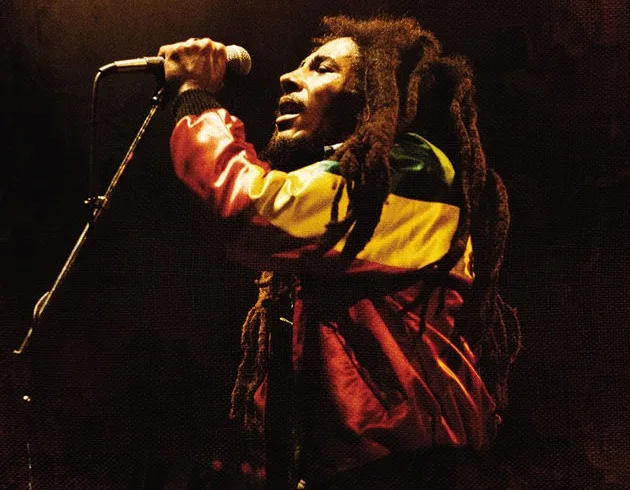There are voices you hear—and then there are voices you feel. Bob Marley’s voice didn’t just fill rooms; it filled hearts, ignited protests, and soothed the wounds of nations. His music wasn’t crafted for commercial charts—it was created for the people. Honest, raw, and spiritually charged, his songs gave rhythm to rebellion and melody to love.
Bob Marley embodied the spirit of reggae not just in sound, but in soul. He was a man guided by faith, driven by justice, and anchored in his roots. His connection to Rastafari wasn’t a stage persona—it was a philosophy that shaped everything from his dreadlocks to his deepest lyrics. But Marley wasn’t preachy. He was powerful in his quiet confidence. You listened because you knew he believed every word he sang.
He had an uncanny ability to speak to the individual and the collective at the same time. When Marley sang “No Woman, No Cry,” it was like he had sat beside you in your hardest moment. When he sang “Get Up, Stand Up,” he was your spine when you felt like folding. That’s why his music endures. It wasn’t just art—it was armor.
Musically, Marley was a master of restraint. He didn’t overload his songs with noise. He gave space—for the rhythm, for the words, for the listener. The “one drop” rhythm, the heartbeat of reggae, became his signature. But it was more than a beat—it was the sound of defiance delivered with grace. He knew how to make protest feel like poetry.
Yet Marley was never just about struggle. He made joy sound holy. In “Jamming” and “Three Little Birds,” you hear a man who knew how to smile through the storm. That duality—fierce and tender, revolutionary and romantic—defined him. He wasn’t trying to be perfect. He was trying to be real.
And he was. Marley stayed close to his people, whether that meant walking barefoot in the hills of St. Ann Parish or playing football in Kingston’s backstreets. He didn’t isolate himself in fame. He pulled it down to street level, so it meant something. That humility is why people still wear his image not as a brand, but as a badge.
Bob Marley passed away in 1981 at just 36 years old. But his spirit hasn’t aged a day. His words still echo in marches, in late-night conversations, in headphones worn by people halfway around the world from Jamaica. Because Marley didn’t just sing to entertain. He sang to awaken.


